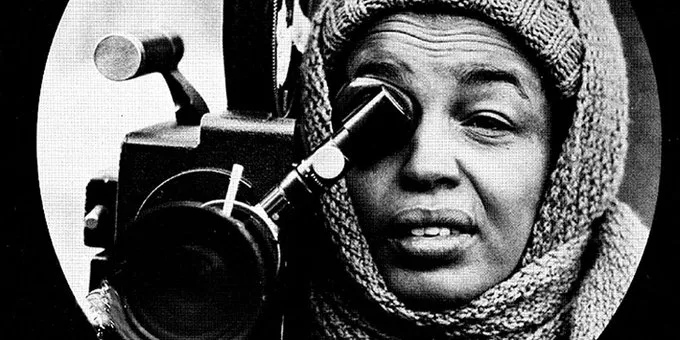|
Getting your Trinity Audio player ready...
|
Introduction
The significance of Tressie Souders in black history is hard to understate. She diligently navigated the landscape of a predominantly white and male-centric Hollywood, shattering barriers as she went along. Known as the first African-American woman director, Souders carved out a space for herself in the industry and laid the groundwork for future generations of black filmmakers.
Her perseverance and groundbreaking work opened doors and fostered diversity in a field that was, and often still is, fraught with racial and gender disparities. Souders’ legacy continues to inspire, affirming the crucial role of black women in film history and culture.
25 Facts About Sounder
- Theresa Ann ‘Tressie’ Souders was born in 1897 in Puxico, Missouri, United States.
- She was a self-taught filmmaker who learned her craft through reading and watching films.
- In her early twenties, she moved to Jacksonville, Florida, a leading center for silent film production.
- In 1922, she became the first African-American woman to direct, produce, and write a feature film, titled “A Woman’s Error.”
- “A Woman’s Error” was independently released and achieved success.
- Despite the film’s success, Souders disappeared from the mainstream film world after releasing “A Woman’s Error.”
- However, she continued to work as a film lecturer, traveling across the southern states and talking about her filmmaking experiences.
- Tressie Souders’ entry into the film industry is still unknown, but it is known that she participated in an amateur theatrical performance of the morality drama “Every Negro.”
- She relocated to Los Angeles, California, between 1923 and 1926, likely to enter the film industry.
- Only in the late 20th and early 21st century did her contributions to cinema begin to be recognized.
- She is now considered a pioneer for black women in cinema.
- Despite her significant contributions, Souders’ life and work are little known.
- Her film “A Woman’s Error” is currently classified as “lost” as there are no known surviving copies.
- Despite losing her film, Souders’ script for “A Woman’s Error” has survived.
- According to the script, “A Woman’s Error” was a complex social drama addressing issues of race, class, and gender.
- The script also highlighted her unique narrative style, often blending reality with fantasy.
- Tressie Souders often financed her films due to racial and gender-based exclusions in the film industry at the time.
- Her ability to direct a feature film at a time when the industry was exclusively white and male established her as a trailblazer.
- Souders’ impact on Black cinema can be seen in the work of contemporary filmmakers like Spike Lee and Ava DuVernay, who also address social and political issues.
- Finally, Souders’ story is a testament to the numerous unrecorded histories of black individuals who have contributed to film and culture.
- Souders’ work is often compared to contemporaries like Oscar Micheaux, another influential African-American filmmaker during her era.
- The International Black Women’s Film Festival (IBWFF), established in San Francisco in 2001, was the ancestor of the Tressie Souders Film Society. The society recognizes and preserves film and video works by featuring Black individuals in non-stereotypical roles.
- Tressie Souders is celebrated for her courage to produce, write, and direct a film during racial hostility and gender bias, cementing her status as a film pioneer and advocate for equality.
- She is also recognized for her skills as a captivating storyteller, which shone through despite the limited filmmaking resources available at the time.
- There is growing interest within the scholarly community to excavate the works of this pioneering filmmaker to gain deeper insights into Souders’s exceptional contribution to Black cinema.
- Tressie Souders passed away in 1995 in San Francisco and is buried with the rest of her family in Frankfort Cemetery in Marshall County, Kansas.

A Legacy Resurrected: Tressie Souders’ Indelible Mark on Film History
- Theresa Ann Souders, also known as Tressie Souders, created a legacy as the first African American woman to write, produce, and direct a film, “A Woman’s Error,” something that had never been accomplished before her.
- She paved the way for other black women in the film industry, breaking barriers and challenging the racial and gender norms of her day.
- Even though her films have not survived, Souders’ contribution to the film industry lives on, inspiring and influencing aspiring filmmakers and providing a blueprint for overcoming adversity.
- Souders’ independent spirit and willingness to push boundaries made it clear that African Americans could be both actors and regulators in filmmaking.
- Her courage and perseverance have been recognized in modern times, with the Tressie Souders Director Award being named in her honor at the Black Women Film Network Summit.
- Souders’ story is a critical part of the history of black cinema, highlighting the role black women have played in shaping the industry.
- She used film as a tool for social change, raising awareness about the experiences and struggles of African Americans in a racially divided society.
Conclusion
A black filmmaker, Tressie Souders’ groundbreaking journey resonates profoundly. She symbolizes the audacity to defy norms and a shining beacon for possibility. Despite the challenges, it’s a vivid reminder that the power to reshape narratives is within our reach.
In her honor, we, as black filmmakers, continue to foster diversity in the cinema while recognizing her contributions to breaking barriers. Each film we create is a tribute to her pioneering spirit, keeping her legacy alive.
On set, I’m reminded that I stand on the shoulders of trailblazers like Tressie. It’s a humbling honor and a reminder that our work encompasses more than mere storytelling — this is the broad chronicling of shared experiences and dreams she championed.
In conclusion, Tressie Souders was more than just a filmmaker; she was a crusader utilizing her craft for social change. Her story is a rallying cry of courage, determination, and resilience, transcending time to inspire future generations of black filmmakers.


